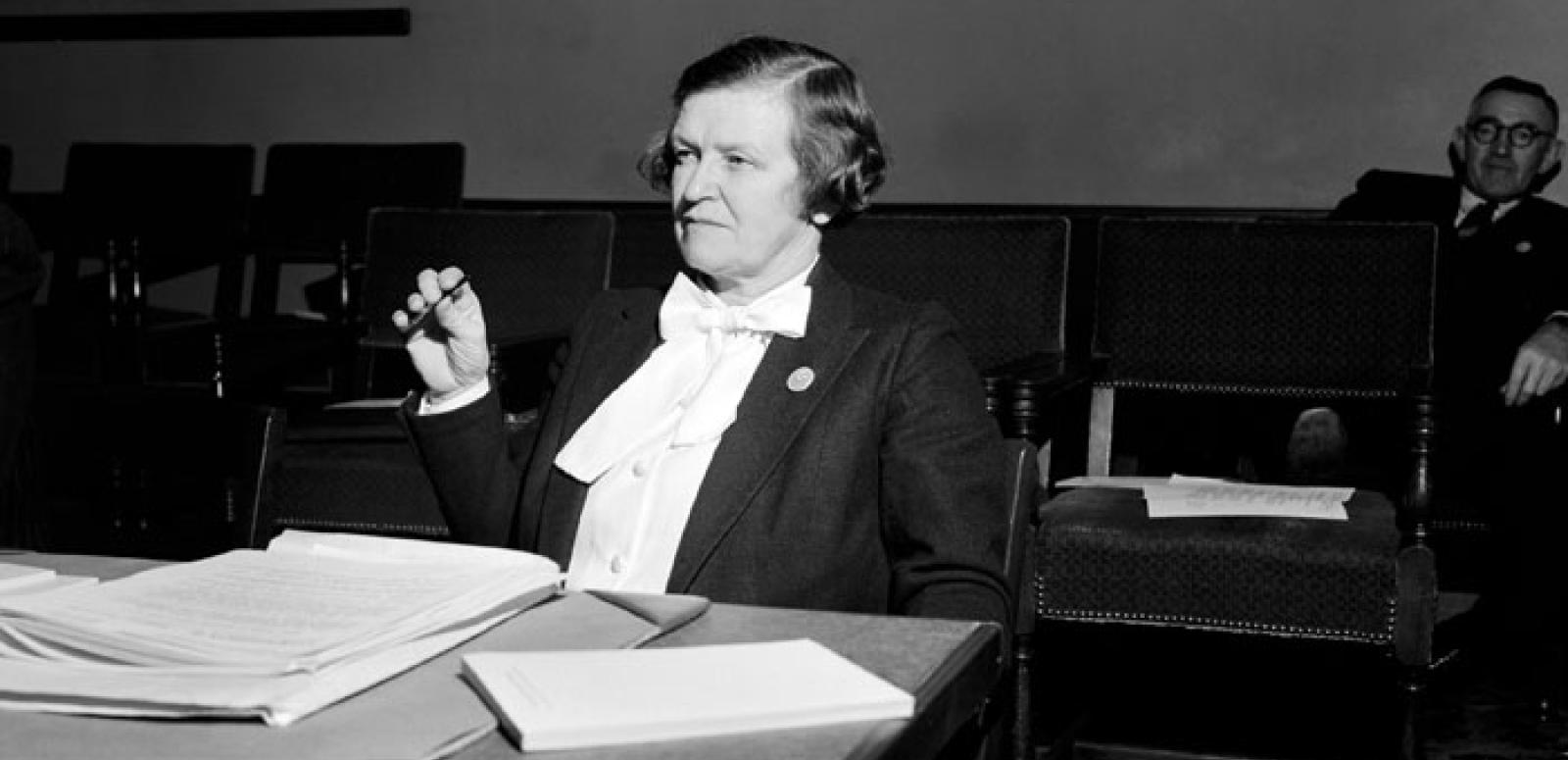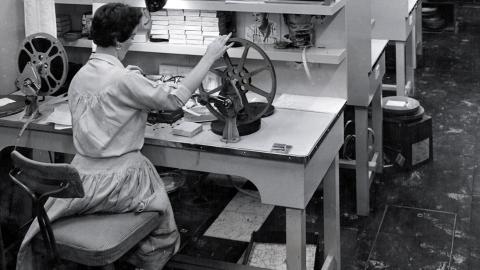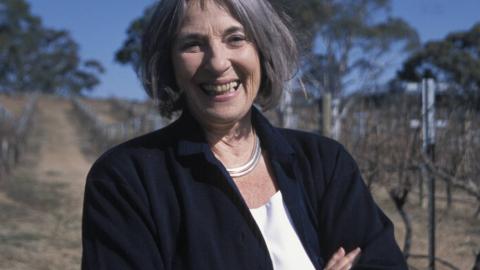

Feminist Jessie Street on 1945 UN founding conference
To mark International Women’s Day, Radio Archivist Maryanne Doyle highlights a firsthand account by noted Australian feminist Jessie Street of the founding conference for the United Nations, in 1945.
Jessie Street’s life and legacy
Born in 1889 Jessie Street was a prominent Australian activist who had been involved in campaigning for women’s rights since the 1920s in several organisations, such as the National Council of Women in NSW, the Women’s College at Sydney University and the Feminist Club, and was elected as president of the United Associations of Women in 1930.
She joined the Australian Labor Party in 1939 and stood for office several times unsuccessfully. Street convened the Australian Women’s Conference for Victory in War and Victory in Peace in November 1943 and was appointed the first Vice-President of the Commission on the Status of Women for the United Nations in 1946. She was involved in the movement which led to the 1967 referendum granting legal citizenship to Indigenous people.
The legacy of the work and life of Jessie Street is honoured by several organisations in Australia which are named after her. Each year the Jessie Street Trust awards a grant (funds for which are raised by an annual lunch) to assist activities she championed, including the rights of women and Indigenous people, peace and disarmament, and the elimination of discrimination. The Jessie Street National Women’s Library preserves documents on women’s lives and activities and supports the field of women’s history to highlight women’s contributions to Australia’s development.
Gender equality as a founding principle
Request United Nations International Conference incorporate into postwar plans the democratic principle of equality of status, opportunity, responsibility and reward for men and women, and elimination of all sex discriminations based on sex.
This cable was sent on the eve of the United Nations Conference on International Organisation (UNCIO) in 1945 to the Secretary General of the Conference and was subsequently provided to every delegation at the Conference. The cable had evolved out of the work of the Australian Women’s Charter Committee.
Representatives of 50 countries attended UNCIO in San Francisco during the closing months of the Second World War, from 25 April to 26 June 1945. The Australian delegation was jointly led by Deputy Prime Minister Frank Forde and Minister for External Affairs Dr HV Evatt. There were 11 other members of the delegation, drawn from the government bureaucracy, opposition political parties, the military, print media, academia, business and the RSL (Returned and Services League). Newspaper reports indicate that it was the largest delegation of its kind which has ever gone from Australia to an international conference.
Jessie Street was Australia’s sole woman delegate at UNCIO. In this recording she addresses the inaugural meeting of the Women’s International League of Radio and describes the work of women delegates at UNCIO, such as the achievement of the adoption of the clause to ensure that there would be no restriction on the eligibility of women to hold a position in the United Nations organisation.
Street also acknowledges the particular contribution by the Inter-American Commission of Women during the conference, and the positive reaction by the women delegates to the preamble to the United Nations Charter drafted by the South African Prime Minister, General Smuts, concerning the equal rights of men and women. The charter, signed in June 1945, was arguably the first international agreement to affirm the principle of equality between women and men.
It is unknown if this recording was ever broadcast in Australia. The recording was most probably associated with an American radio broadcast. In Street’s autobiography she mentions that she was interviewed for radio both during UNCIO in San Francisco but also in Los Angeles following the conference.
Acknowledgement
With thanks to the Street family for allowing the NFSA to provide access to Jessie Street’s speech.
Resources
Australian Women’s Charter, The Australian Women’s Register website
Coltheart, Lenore (ed.) 2004, Jessie Street: a revised autobiography, Federation Press, Annandale
Radi, Heather Street, Jessie Mary, Australian Dictionary of Biography
History of the United Nations, UN website
Home movie silent footage of the UNCIO conference on australianscreen, with a brief glimpse of Jessie Street
Jessie Street Trust website
Jessie Street National Women’s Library website
The National Film and Sound Archive of Australia acknowledges Australia’s Aboriginal and Torres Strait Islander peoples as the Traditional Custodians of the land on which we work and live and gives respect to their Elders both past and present.


